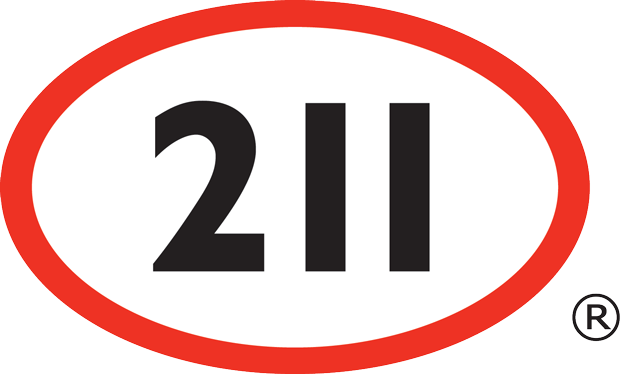Michelle Ste-Marie Appointed Interim Director of 211


Find Community and Social Resources
Find services by topic
The mission of Québec Youth Centers is to help adolescents become critical, active and responsible citizens. To provide them with significant resource-people so that they may build trusting relationships. Self-esteem, support and independence are at the heart of all their interventions. Here is an overview.
Youth Centers are above all welcoming places where teenagers can find a cozy space that is generally set up like a home. There are kitchens and living rooms furnished with tables, sofas, TV's, computers, board games and game consoles. Usually, there are also accessible game rooms with pool and foosball tables, ping-pong, table hockey, etc.
Whether for 10 minutes or 2 hours, youth can easily go to these places, without an appointment, to relax or have fun, talk, hang out or even do homework without having to participate in any formal activities. However, youth centers have so much more to offer than that.
Not only can youth have free access to the centers and participate in the activity of their choice, but they can also have access to counselors who hold an important place within these centers. In fact, they are there to welcome, accompany, and support youth in need.
Therefore, at the youth centers, adolescents will find an attentive ear no matter the issues they are facing: family problems, sexuality/gender questioning, difficulties in school, bullying, discrimination...If needed, counselors can even direct them to a resource better adapted to their situation.
| Laurence, 26, counselor at Maison des jeunes du Centre communautaire Val-Martin in Laval explains: «We want to show them that adults are not just authority figures. We can be role-models, confidantes. » Laurence, herself, received services from this youth center. She enjoyed the experience so much, that she wanted to work there. «I wanted to give back what I was given as a young person searching for my identity. » |
Youth can take advantage of free periods where they can do what they want without following an activity schedule. However, the possibilities of supervised activities are numerous and varied and always planned according to the youth's interests since they are the ones who make the suggestions and help plan them.
«We are always listening to the needs of the young people; we organize activities with and for them. »
-Laurence, counselor at Maison des jeunes du Centre communautaire Val-Martin in Laval.
Many workshops are offered at the youth centers: cooking, music, theatre, improv, dance, painting.... and what they all have in common is fostering exchanges and personal growth while allowing adolescents to explore and eventually find their passions.
Some youth centers, like maison des jeunes du plateau, also possess audio-visual equipment which places a mobile radio set at the youths' disposal. Teens can therefore create their own radio show. Some centers also have access to sports equipment which enables playing certain sports like soccer or basketball, indoors as well as, outdoors.
Water parks, laser quest, bowling, movies, sugar shacks, La Ronde, festivals or camping: outings are adapted for each season and organized by the youth centers. Depending on the activity, it can be free or paying.
Other than recreational, sports or cultural activities, youth centers are also a quiet place where adolescents can do their homework. Some counselors can even help them if needed.
Youth centers also encourage youth's active participation in the development of society. The counselors also have the mission of supporting young people in their transition to adulthood, which comes with numerous questions and issues specific to each.
Youth centers are spaces for exchanges. Thus, thematic discussions may be arranged on numerous subjects such as the environment, sexuality, food, drugs, etc. These discussions enable youth to calmly interact, with each other and with the counselors, on various societal issues affecting them.
Youth centers are also places for information and prevention on subjects like sexuality, alcohol, gambling, etc. Whether it is through workshops, conferences or collaborations with organizations in the field, adolescents can meet with professionals and experts and have access to reliable information on numerous social issues.
Thanks to youth centers, adolescents can also get involved in concrete projects, such as volunteering for organizations or even developing their own projects: fundraising campaigns, information and prevention in schools, etc.
Their involvement begins directly at the youth center, since they can sit on the board of directors, join youth committees, organize annual general assemblies, etc.
The impact of youth centers on the development of adolescents is considerable. As indicated on the Regroupement des maisons des jeunes du Québec (RMJQ) website, these places are there to:
Thus, youth centers contribute to the development of «critical, active and responsible citizens, but also confident and thriving human beings. »
Why go to a youth center? The RMJQ answers this in this video (In French only)
Watch other videos from RMJQ (In French only)
|
An unfair bad reputation Beverly, 24, counselor at the Maison des jeunes La piaule in Joliette explains «A lot of times people do not know what youth centers are, they think they are transition houses or from Youth Protection and for problematic youth. Young people themselves or even their parents can think that. It is totally false. We can have youth who have problems, but it is not a criterion. We are a day center; we are here to offer activities. […] We offer all kinds of sports activities like tennis, hockey but also prevention activities on sexuality, addiction...Our role is to make young people active, critical and responsible. » In fact, if parents are curious as to what goes on in youth centers, visits can be arranged. « Parents are allowed to come and visit. It enables them to see what we do and get to know the counselors. » |
In general, membership to youth centers is free. However, it does happen that adolescents must purchase a membership card for 5$ or 10 $. This card is usually valid for the duration that the youth frequent the center.
Youth centers are open during the week, after school and in the evenings until 8 or 9 pm. Some are open on Fridays until 10 pm. Be careful, some close between 5 and 6 pm. When youth centers are open on weekends, it is mainly for one-off activities. Youth can also go there on holidays and ped (pedagogical) days. In the summer, the schedule is modified, and supervised activities are often centered around outings and worker cooperatives.
To learn more about youth centers and to find one near you, go to the Regroupement des maisons de jeunes du Québec website. To find more resources for the young and not-so-young, please consult our database by clicking on:



